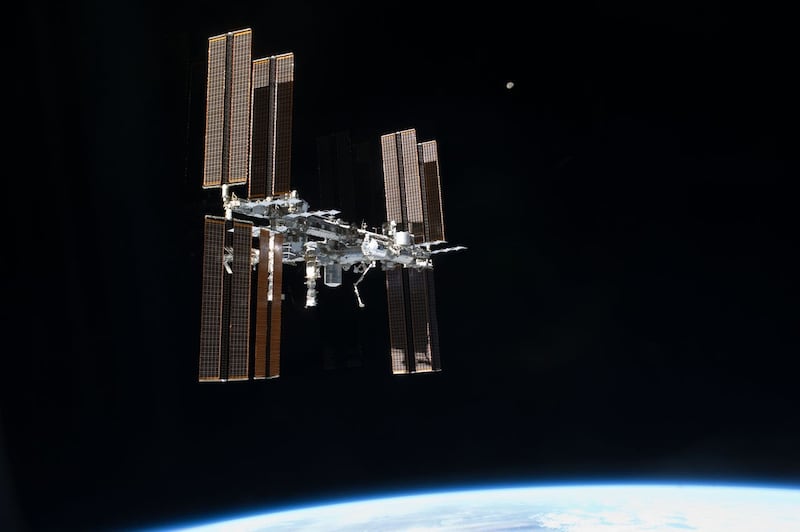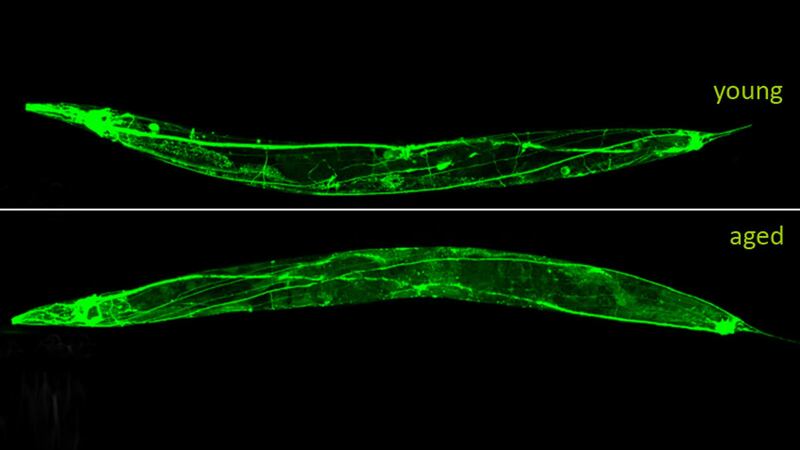Living in space affects cells at the genetic level, according to a study of roundworms.
Analysis of nematode worm species, known as Caenorhabditis elegans, which were sent to the International Space Station has revealed “subtle changes” in close to 1,000 genes, with stronger effects seen among cells in the nervous system.
The researchers believe their findings, published in the journal iScience, could help understand why humans and other living organisms experience physical decline in space.
Timothy Etheridge, of the University of Exeter, said: “We looked at levels of every gene in the worms’ genome and identified a clear pattern of genetic change.
“These changes might help explain why the body reacts badly to space flight.

“It also gives us some therapy targets in terms of reducing these health effects, which are currently a major barrier to deep space exploration.”
Astronauts can lose up to 40% of their muscle when they spend six months or longer in space.
Over the years, the extreme spaceflight environment of the space station has given scientists the opportunity to study the physiological changes in humans.
The worms, which are about 1mm in size, are known to share many of the biological characteristics as humans.
They are also affected by biological changes caused by living in space – which includes changes to muscle mass and the ability to use energy.
The study exposed worms to low gravity on the space station, and to high gravity in centrifuges.
Why do muscles degrade in space? Research done on C.Elegans worm in space. Artificial gravity helps to counter muscle loss #spacemeetshealth pic.twitter.com/00hCEpJ89e
— Human Spaceflight (@esaspaceflight) November 8, 2016
Lead author Craig Willis, of the University of Exeter, said: “We have identified genes with roles in neuronal function and cellular metabolism that are affected by gravitational changes.
“These worms display molecular signatures and physiological features that closely mirror those observed in humans, so our findings should provide foundations for a better understanding of spaceflight-induced health decline in mammals and, eventually, humans.”
The research comes along with a series of other studies looking at the effects of space travel on humans and other organisms, published in the journal Cell.
Scientists at Sanford Burnham Prebys Medical Discovery Institute in California, US, have shown fruit flies that spent several weeks on the space station experienced profound structural and biochemical changes to their hearts, suggesting astronauts who spend a lengthy amount of time in space could suffer similar effects and may benefit from protective measures to keep their hearts healthy.
Sharmila Bhattacharya, a senior scientist at Nasa and a study author on one of the papers, said: “As we continue our work to establish a colony on the moon and send the first astronauts to Mars, understanding the effects of extended time in microgravity on the human body is imperative.
“Today’s results show that microgravity can have dramatic effects on the heart, suggesting that medical intervention may be needed for long-duration space travel, and point to several directions for therapeutic development.”
DYK: New @ISS_Research studying fruit flies in space to investigate effects of spaceflight on cardiovascular system→ https://t.co/74AqBnd9Mt pic.twitter.com/AK30LdRmBS
— ISS National Lab (@ISS_CASIS) June 15, 2017
Another study, based on both mice and humans who have travelled into space, has revealed critical parts of a cell’s mitochondria, or the energy production machinery, can be made dysfunctional due to changes in gravity, radiation exposure and other factors.
Scientists at Georgetown Lombardi Comprehensive Cancer Centre in Washington DC, US, said their findings could also have implications on future space travel.
Evagelia C Laiakis, an associate professor of oncology at Georgetown, said: “My group’s research efforts centred around muscle tissue from mice that were sent into space and were compared with analyses by other scientists who studied different mouse tissue.
“Although we each studied different tissue, we all came to the same conclusion: that mitochondrial function was adversely impacted by space travel.”







